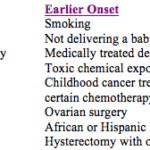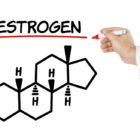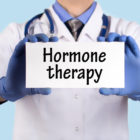
Everyone wants to keep their skin look beautiful. It’s the first thing people see when they look at you. So here are some “Top Tips” for glowing skin and graceful aging by my friend and colleague, Dr. Trevor Cates.(www.TheSpaDr.com)
Did you know that signs of hormonal imbalances show up on your skin? One of the biggest reasons our skin breaks out and shows signs of aging is due to changes in our hormones. Aging is part of life and brings with it wisdom and experience. While wrinkles are a sign of living and laughing, none of us want to look any older than we really are.
Hormones are important chemical messengers produced in organs such as the ovaries, adrenal glands, and thyroid glands, and they play a big role in our overall health and our skin.
Here are the top 3 hormones that impact our skin:
- Estrogen
As we age, estrogen levels decrease, and while it can lead to more fragile bones, it also creates significant changes in the skin. With declining estrogens, you may find that your skin becomes drier, more wrinkle-prone, less elastic, more fragile, and even paler. Your skin starts to look less vibrant because of decreased blood flow.
Phytoestrogens (plant estrogens) can be found naturally in certain foods such as flaxseeds and soy and have been shown to cause hormone effects. Even though they’re known as natural estrogen mimickers, eating flax and soy also helps estrogen metabolism. This breakdown and removal of estrogens help avoid excess levels and is important when it comes to protecting against any potential negative effects of estrogen on the breasts. I prefer the less processed forms of soy like edamame beans, soymilk or tempeh, and always choose organic and non-GMO.
- Testosterone
Testosterone stimulates the sebum producing glands, which are important for protecting your skin with natural oils, but in excess can lead to acne breakouts. Your body keeps a delicate balance with hormones such as estrogen, progesterone and testosterone (in both men and women).
Sometimes hormone fluctuations during and around menopause will lead to an increase in testosterone or challenges with hormone metabolism, which can lead to adult acne. If your skin is excessively oily or acne-prone and you’re feeling like a teen again (but not in a good way), you might be dealing with an imbalance.
One way to help testosterone balance and metabolism and decrease sebum production is to avoid dairy products (even organic and raw dairy). Dairy products are made from the milk of pregnant cows, which contains hormones that can throw your own hormones out of balance.
I also recommend consuming omega 3’s (in fish and supplements) and zinc in the form of a supplement or foods such as green beans, sesame seeds and pumpkin seeds. If you’re still having trouble with excess sebum and breakouts, supplementing with saw palmetto may help your testosterone metabolism, but it’s also important to check in with your healthcare provider.
- Thyroid
Thyroid hormones also influence your skin’s appearance. Overactive thyroid can cause a warm, smooth, sweaty, flushed skin. Underactive thyroid can lead to dry, coarse skin and reduced ability to sweat.
If you experience any of these skin problems and also have problems with your weight, digestion (constipation or diarrhea), or energy (fatigue or feeling amped up), talk with your doctor about having some thyroid testing done. If your thyroid is low or high or you have antibodies, you’ll want treatment tailored accordingly.
To help your skin stay hydrated with a healthy oil barrier, be sure to consume essential fatty acids like omega-3. A diet short of these body-nourishing fats can leave your skin dry, itchy, and also prone to acne.
Here are 3 top tips to help with hormone balance:
1. Maintain your hormone balance by managing stress, eating a balanced and nutrient-rich diet, and exercising regularly. Eat foods that support your liver detoxification pathways to help ensure proper hormone metabolism, such as cruciferous veggies, onions and garlic.
2. Avoid harmful skincare ingredients and other sources of endocrine-disrupting chemicals (EDCs) such as plasticizers and pesticides. Many skincare products contain hormone-disrupting chemicals, so choose your products wisely. Remember, a good general rule is – if you wouldn’t put it in your mouth, don’t put it on your skin. Vip.TheSpaDr.com – My new skincare line is coming soon and is completely natural!
3. If you find you have hormone imbalances, various herbs and nutrients such as chaste tree berry, maca, and DIM can support estrogen balance. And, if you’re at or around menopause, you might consider bio-identical hormone therapy.
If you think your hormone levels may be out of balance, talk with your healthcare provider about testing your hormone levels and getting individualized support for hormone balance. Wonder where you are in menopause? Take the free, 2-minute Menopause Quiz.







